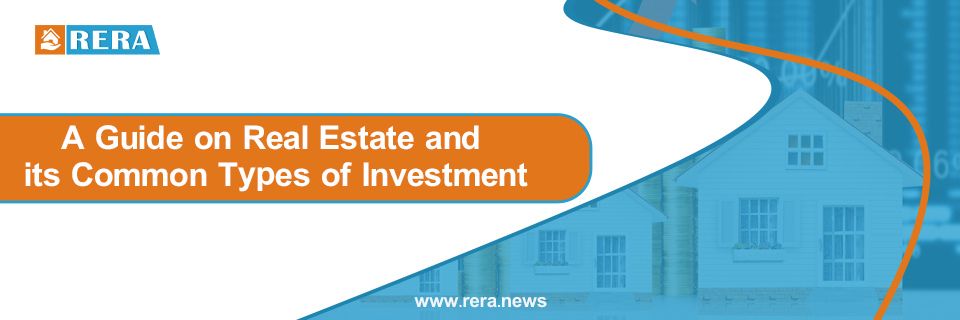
What is Real Estate?
Real estate refers to the transactional sale or purchase of real property, which encompasses the actual land and anything else that is inextricably linked. Included are natural resources and physical land improvements like houses. Additionally, modifications may include brand-new and historic structures as long as the property is on the land.
Real estate can be used for various objectives, such as providing housing for people, farming undeveloped land, and leasing commercial property to businesses. Real estate company specialists like real estate agents, brokers, or developers make money by creating or facilitating the exchange of property.
How Does Real Estate Work?
New property construction: Despite the abundance of available real estate, new construction is always needed. Real estate development firms frequently oversee the building of new structures, such as residential and commercial buildings. Contractors will construct the properties, and after they are finished, they are prepared for appraisal, sale, or rental to compensate the builder or developer for their work.
Purchase and sale of residential real estate: The housing market is a significant component of the real estate industry. Because buying and selling a property can be complicated, many customers work with residential real estate agents, brokers, or realtors to make the process easier. The availability and demand for certain homes in specific locations determine how residential real estate operates. Each property is valued differently depending on its square footage, additional amenities, location, and nearby properties. The buyer, the seller, and each agent work together to complete the financial and legal tasks necessary to transfer a property request from one party to another during a residential real estate transaction. Making an offer, getting the mortgage lender's approval, getting home appraisals and inspections, closing on the house, and handing over the property's title by signing a deed are all parts of this procedure.
Real estate investment: Investment properties might be rental homes or houses that have been flipped. The building owner collects rent and engages a property manager to look after the building. Companies that own and manage real estate are known as real estate investment trusts (REITs), and if they are publicly traded, ordinary people can invest in them for passive income. Depending on your location, property type, and use, various real estate investments will produce varying returns. Real estate developers are property investors, but they also work on constructing new homes rather than purchasing pre-existing ones.
Common Types of Real Estate Investment?
There are various types of real estate, each with a particular use and utility. The major groups are:
Household: A piece of real estate only utilised for private, residential habitation is referred to as "residential real estate." Structures including single-family homes, condominiums, townhouses, and multifamily rental buildings with four or fewer housing units are considered residential properties.
Commercial: Any property utilised solely for professional or business purposes, or to produce cash flow for the owner or lessee, is considered commercial real estate (or CRE). Retail establishments, office buildings, strip malls, petrol stations, shopping malls, and apartment complexes with five or more units are considered commercial properties.
Raw land: Vacant land, farms, or other undeveloped property are all referred to as "raw land." This area of the land has seen very little development or farming. As a result, it is less expensive than developed land and frequently has more valuable options.
Industrial: Property utilised for production, manufacturing, and storage, such as factories or power plants, is industrial real estate. The primary distinction between industrial and commercial real estate is that while CRE focuses on transactions for the distribution or sale of commodities, industrial real estate comprises land transactions for manufacturing.
Specific objective: Real estate deals with buying and selling properties for public spaces, including cemeteries, parks, libraries, and schools. These locations have distinct, constrained uses, although they may also be considered commercial property.
What kind of property is your best investment?
Doing your homework doesn't only mean saving money for a down payment if you're thinking about investing in traditional real estate, such as residential or commercial properties. It's crucial to understand your local market. That investment may rapidly become a burden if there isn't much demand in your area for residences or commercial property or if property values begin to decline.
If you'd rather be more hands-off with your investing, REITs and crowdfunding websites are more straightforward methods to include real estate in your portfolio without owning the actual property.
Some brokerages provide REIT mutual funds and publicly traded REITs.
Conclusion
There are benefits and drawbacks to each sort of real estate investing. Therefore, we are still determining which is best. But if you want to be a successful real estate investor, you must evaluate both your financial status and the potential for growth of the asset you wish to purchase. Plan your long-term and short-term uses for the property as well.
© 2023 Rera News. All rights reserved.